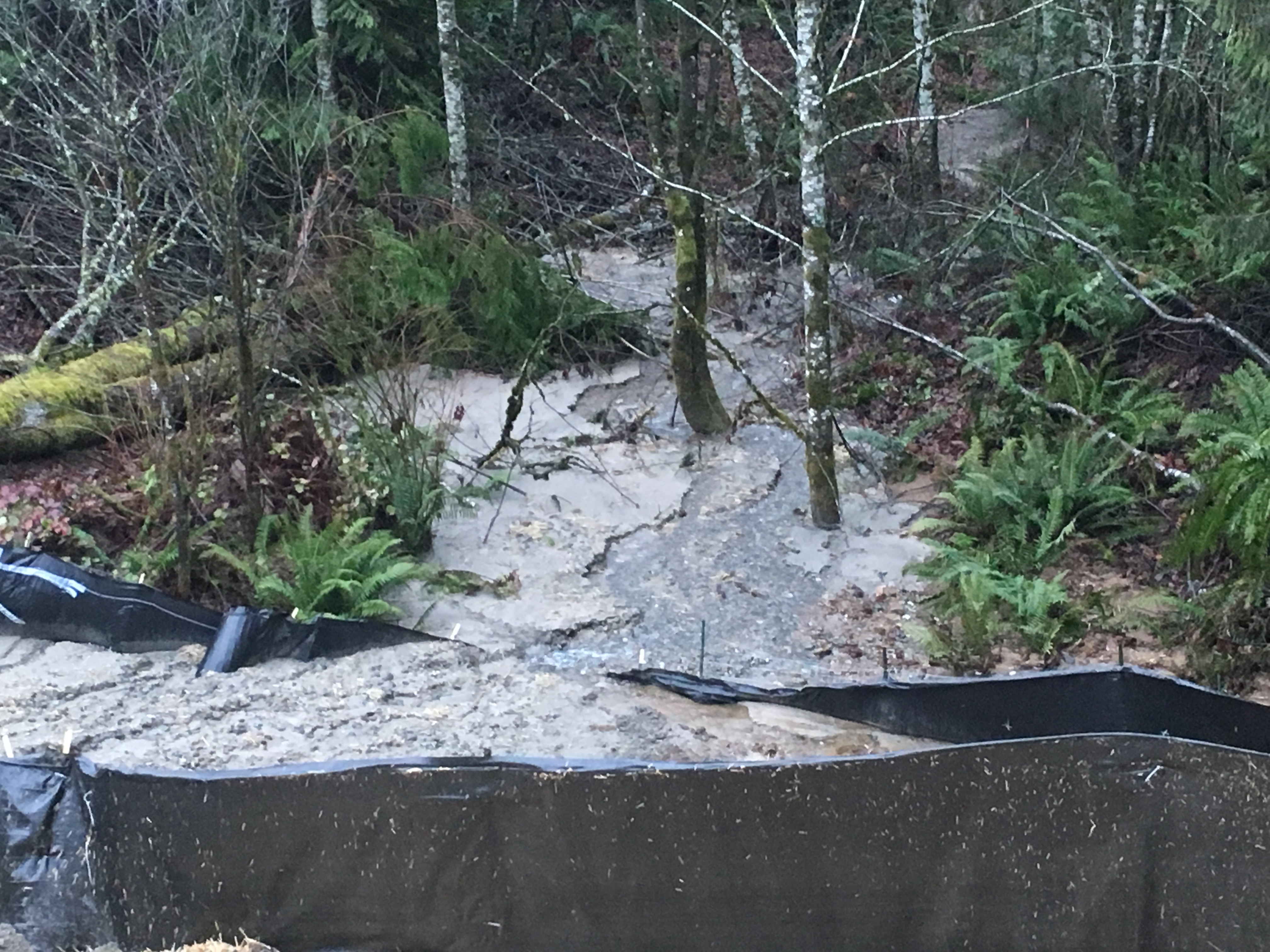The Washington Department of Ecology has fined Stetson Heights LLC $202,500 and ordered it to take corrective action after the company caused significant damage to wetlands that flow to streams with runs of salmon and steelhead trout in Port Orchard.
Stetson Heights LLC cleared more than 80 steeply sloped acres on Glenwood Road SW in 2018 without protecting the bare ground from stormwater erosion. Stormwater from autumn rains flowed from the cleared land as muddy water. By late fall, up to 4 feet of mud covered parts of wetlands and streams on – and adjacent to – the project property.
“This damage was avoidable,” said Heather Bartlett, Ecology’s Water Quality Program Manager. “Stetson Heights should have cleared the site in phases. Last July we found immense bare slopes on the site, with little to no protection on the ground, just weeks before the autumn rains. The developer was unresponsive to Ecology and city staff when we worked to reduce the risks and prevent this damage.”
The fine lists 15 violations, several occurring multiple times. The company disregarded 11 construction stormwater general permit requirements, and violated four parts of a November 2018 order to put those protections in place.
Ecology is now ordering Stetson Heights to halt further construction until it can show that the site meets the stormwater requirements. The order also directs the company to restore – under Ecology oversight – the wetlands and streams and monitor how well those habitats recover for 10 years or until Ecology declares the restoration complete.
The affected wetlands feed into Ruby Creek, which contains coho salmon and cutthroat trout, then to Blackjack Creek, which contains steelhead trout, a federally-listed threatened species.
Muddy water can harm fish because the particles can damage their gills. Silt buildup also smothers stream habitat where adult fish deposit eggs and juveniles forage for food. Silt also disrupts the natural functions of wetlands to filter sediments and other pollutants from surface water runoff, and control flooding.
The city of Port Orchard shut down all work on the project except for construction of stormwater control measures required under Ecology’s water quality permit and the November 2018 order. The shutdown lasted from December 2018 until last month, but the site still lacks many required stormwater protections.
Ecology water quality penalty payments go to the state’s Coastal Protection Fund, from which the agency issues grants to local and tribal governments, state agencies, and public benefit nonprofit organizations for water quality restoration projects. Ecology penalties and orders may be appealed to the Washington State Pollution Control Hearings Board.
Construction company fined $202,500 and ordered to restore damaged wetlands
Developer cleared steep Port Orchard site without runoff controls
Mud flows over a wetland at the Stetson Heights construction site in Port Orchard on Dec. 26, 2018.


